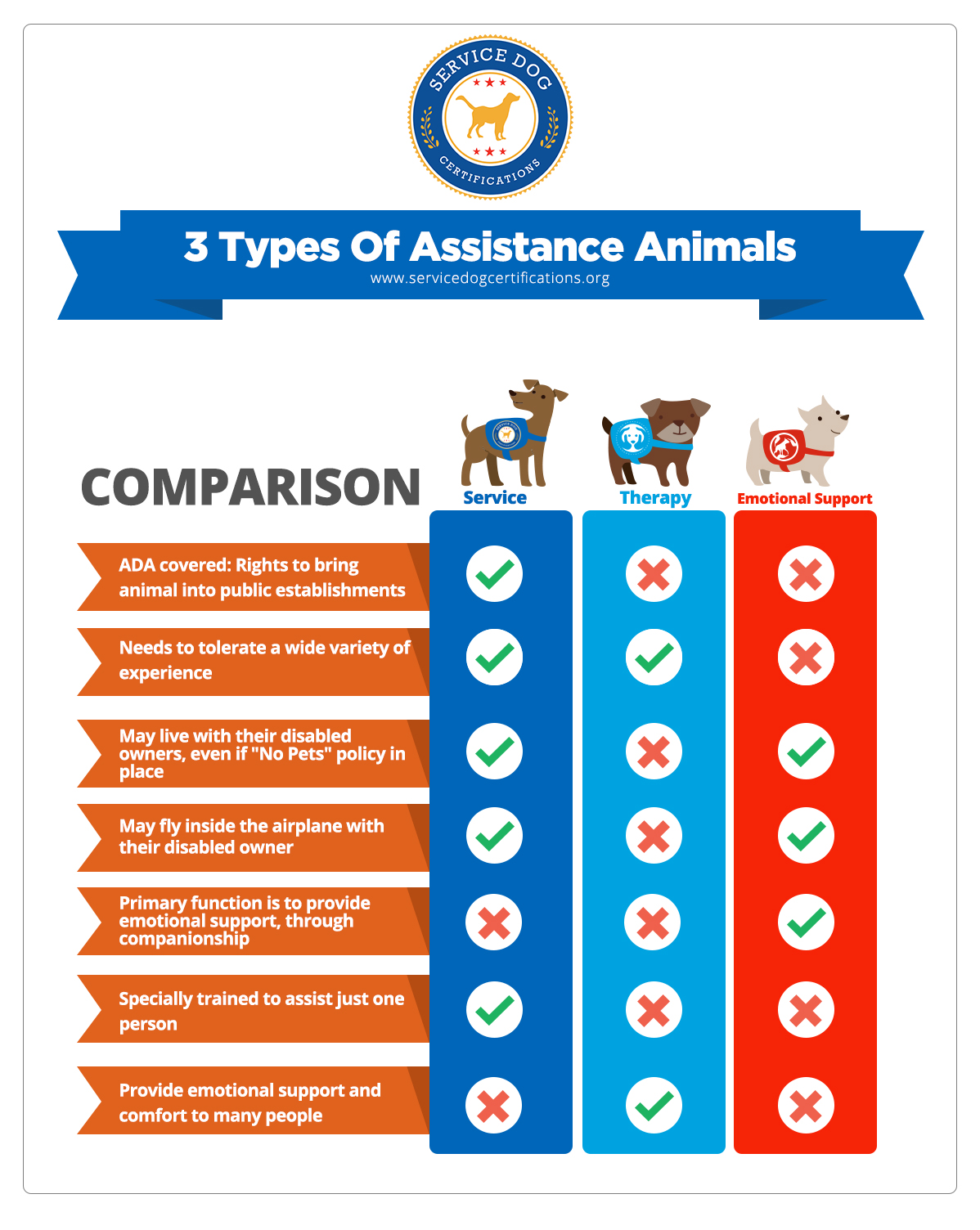Service Animals And Emotional Support Animals In Victim Services

Examples include a dog that guides an individual who is blind alerts a deaf or hard of hearing person when a doorbell rings or picks up and hands a pen to a person a with a mobility impairment.
Service animals and emotional support animals in victim services. A service animal falls under the Americans with Disabilities Act and is usually a dog that is trained to do work or perform tasks for the benefit of an individual with a physical sensory psychiatric or intellectual disability Emotional support animals are not trained in specific tasks and are not recognized under the ADA. Dogs are great animals who are more than able to help ptsd victims. PDF Link to Policy.
An ESA is not a pet a Service Animal or a therapy animal. The federal Fair Housing Act requires housing facilities to allow service dogs and emotional support animals if necessary for a person with a disability to have an equal opportunity to use and enjoy the home. Introduction Individuals with disabilities may use service animals and emotional support animals for a variety of reasons.
An ESA may be requested by a student with a psychiatric disability as an accommodation in University housing. Learn the differences between service animals crisis response canines emotional support animals therapy animals and pets. Et the Office for Victims of Crime Training and Technical Assistance Center will present an online Expert QA discussion with Marcie Davis and her service dog Lovey Davis on Service Animals and Emotional Support Animals in Victim Services.
There are differences in the processes required and in the accommodations provided to individuals with identified disabilities supported by Service Animals and Emotional Support Animals. If the dog has been trained to sense that an anxiety attack is about to happen and take a specific action to help avoid the attack or lessen its impact that would qualify as a service animal. Service animals in training are permitted in all public facilities on the same basis as working service animals provided that the dog is on a leash and is being led or accompanied by a trainer for the purpose of training the dog and the trainer has documentation confirming the trainer is affiliated with a recognized or certified service dog training organization.
An Emotional Support Animal ESA is any animal not just a dog prescribed for a person with a significant diagnosed psychiatric disability. Requests to possess an ESA in a residential facilities including their common areas must be approved by the Departments of Disability Resources and Residence Life. These differences are explained in the separate sections of this documents.
Your landlord may not require you to pay extra to have a service animal although you are liable for any damages your service animal causes to the property or to another person. Emotional support animals are not required to be trained to perform a specific job or task and therefore they do not qualify as Service Animals under the Americans with Disabilities Act. The ADA makes a distinction between psychiatric service animals and emotional support animals.



















